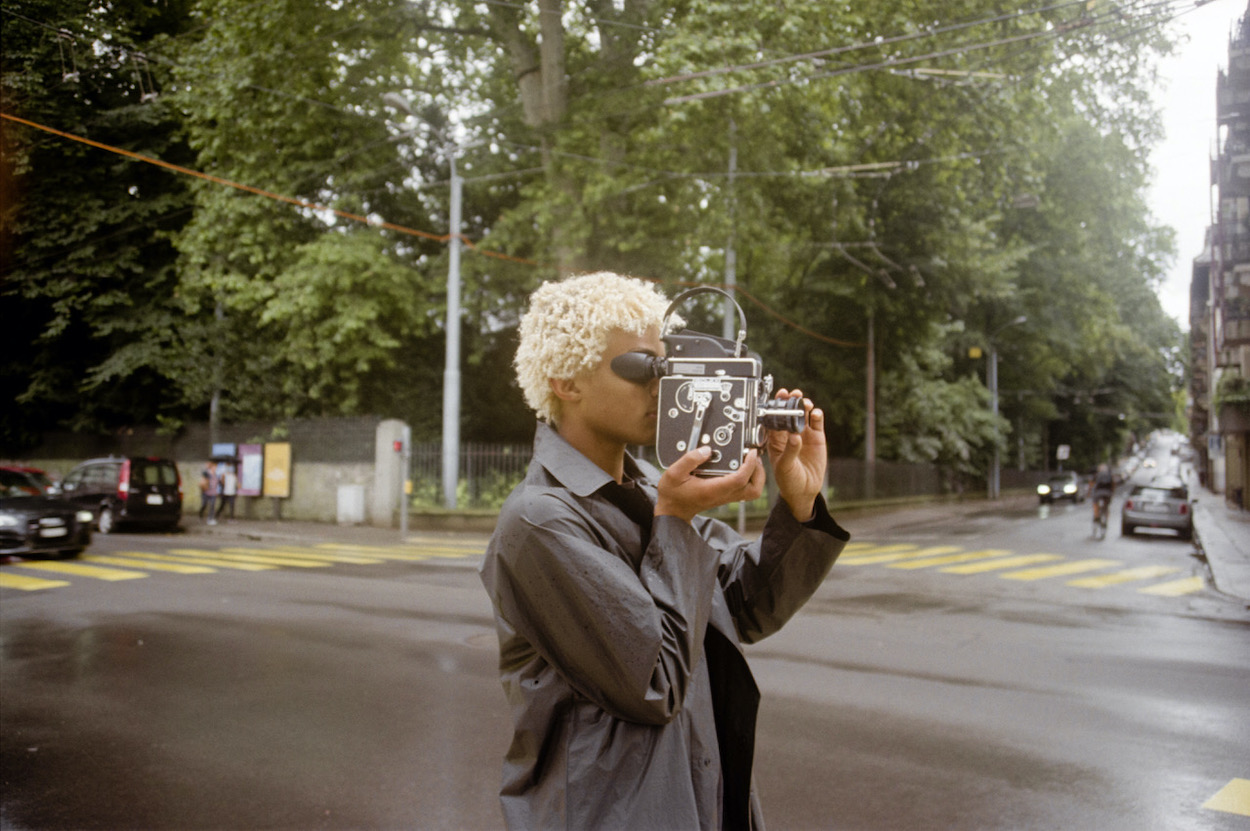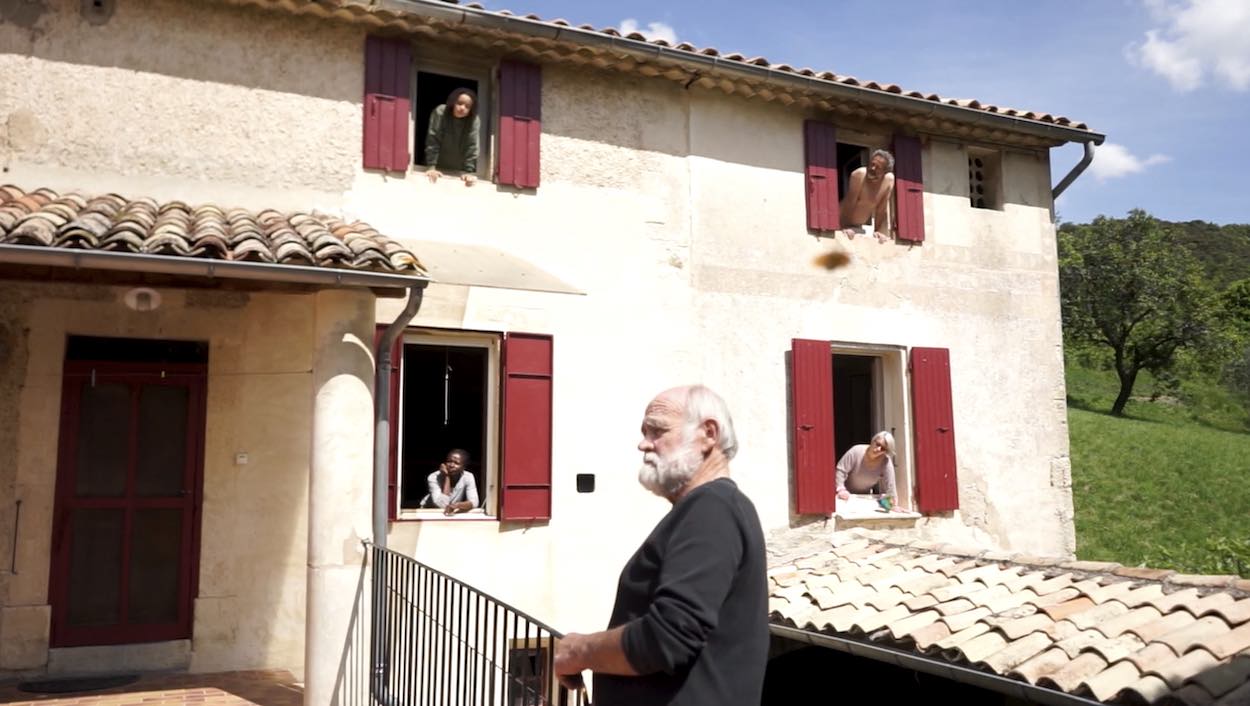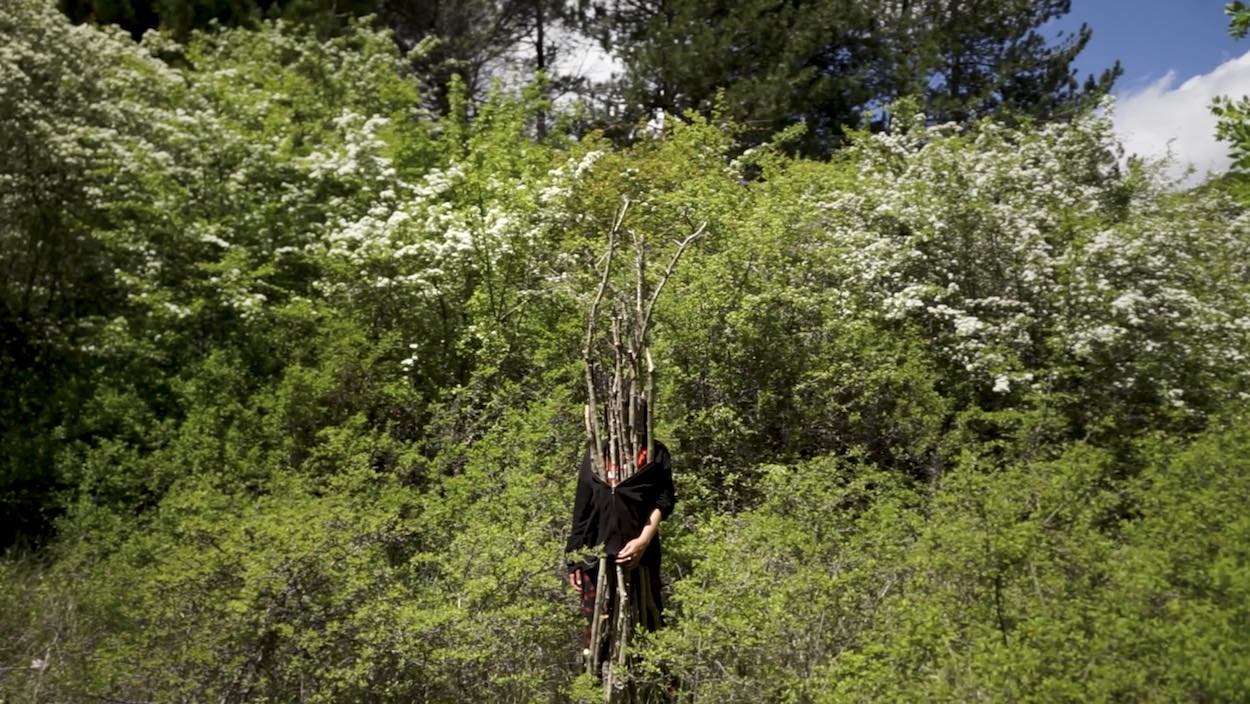Nathan Clement photographed by Arthur Prader
You’ve beautifully captured the intimacy and intertwined paths of family life in La Promenade Sous Les Arbres. To what extent did the film evolve while you were on holiday in Provence and how much was pre-planned?
The film sort of just happened. We went to our family summer house in Drôme in March 2020 for what was supposed to be a week, when the government announced the first lockdown. We were very lucky to spend those odd times in such an open space, together. Then, with what seemed like unlimited time, we built the piece day by day, based on what everyone was doing. At first it was simply me documenting the life in the house, and from there we simply started to have fun.
What inspired you to make the film?
I grew up in Reunion Island, where there is either the rainy or the dry season. I’d moved out to study in Switzerland earlier that year, so it was the first time I saw a European spring, my eyes just wide open. I wanted to capture that innocence, which is why the film can sometimes seem a bit naive.
The title is a direct reference to the book La Promenade Sous les Arbres by Swiss poet Philipe Jaccottet. He describes the coming of spring in Drôme and the impossibility to translate the beauty of nature into words. I feel as though reading this book throughout the process influenced the overall pacing of the film: not trying to explain anything, taking the time to just watch, like poetry.
Did you encounter any challenges while directing your own family?
The characters they play were created close enough to their personalities so that they didn’t have to go way out of their comfort-zone. I remember my dad jokingly telling me that he could do anything, even if it meant running naked. So I made him run naked.
I would set up the situations, and they would come up with most of the ideas, then we would build from there. The hardest thing was to keep it fun for them, because they were tired of me making them do the same thing for twelve takes, especially my grandparents.
I think eventually everyone was aware that this moment might be the last time we spent that much time together, so they were willing to give it their best.
You shot and edited the film yourself – did the story line emerge in the edit?
I had a very clear idea of the opening – up until we meet all five characters – and I knew I wanted the film to feel circular and slow like the lockdown days. But I had no idea what the trajectories of the characters would be.
Because of the special situation we were in, I was able to go back and forth a lot between shooting and editing. For example, if I liked the rhythm of a scene, but one shot wasn’t well paced, I could reshoot that particular shot the next day knowing where it would land in the scene. I’d edit it straightaway and start again if the rhythm still felt wrong. Almost all the sound was post-synced using my iPhone and Freesounds for the ambiances. This amount of both freedom and precision is something a regular production doesn’t allow at all. It felt very luxurious and taught me a lot about my own process.
Do you come from a particularly creative background?
Not really. Both my parents are teachers. They passed on to us the love of constantly learning new things, to stay curious, to be critical. There was always music at home and we watched movies quite often. They are really supportive of my sister and me and I am very grateful to them.
Tell us about your childhood.
Growing up in Reunion Island, I was always outside, I had a hard time communicating with the other kids, I was in my bubble. I had very specific obsessions, like at some point I wanted to know everything about planes. I was a science head, building rockets using vinegar and baking powder, I wanted to be an engineer. If I didn’t understand how something was working, I would search everything about it until I did – I broke way too many things taking them apart, though. Or if I couldn’t get something I’d make it out of cardboard, like a fake plane cockpit or a drum kit. Honestly, I still feel like that kid. I just have other obsessions and sharper tools to express myself now.
You’re currently at HEAD-Genève – please tell us about that. And was making this film part of your studies?
La Promenade Sous Les Arbres is my first-year film. We had a workshop with filmmaker Marie Losier, where we were supposed to make a musical doc-fiction film on 16mm, but the school went online and so we had to do the same thing but from home.
I like HEAD-Genève a lot. The fact that it is first an art & design school before being a film school changes a lot the approach to the education. We’re in small classes; they want to be quite transversal in their teachings. They leave us free enough to follow through on our ideas. There’s really room to experiment, to make mistakes. It’s a public institution, so the tuition is cheap and the classes are great. I feel very privileged to attend school there. The only thing is that they didn’t really support us through the coronavirus crisis last year; we went a bit mad trying to film within government restrictions. But didn’t we all go a bit crazy?
What are you currently working on?
I’m in Reunion Island scouting for my graduation film while doing final edits on my second-year film, Max et les Etranges. It’s a short that explores themes of gender and the night, set in a hazy urban setting where strange people wander, with an original jazz score composed by an old friend from music school.
Right now, I’m very grateful for the friends I made at film school. They’re a bunch of really talented people and we’re very tight. Watching them work is so empowering; their insights made me grow a lot, personally and creatively. We all struggled a lot to make our films due to the pandemic this year, so we could only rely on each other to make things happen and tell our stories. Having this little family we can trust will really change the game moving forward.
Nathan Clement Vimeo




















